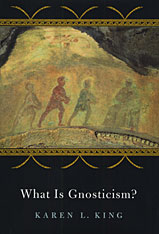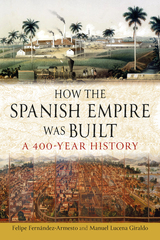
Lost in antiquity, rediscovered in 1896, and only recently accessible for study, The Secret Revelation of John offers a firsthand look into the diversity of Christianity before the establishment of canon and creed. Karen L. King offers an illuminating reading of this ancient text--a narrative of the creation of the universe and humanity and a guide to justice and salvation, said to be Christ's revelation to his disciple John.
Freeing the Revelation from the category of "Gnosticism" to which such accounts were relegated, King shows how the Biblical text could be read by early Christians in radical and revisionary ways. By placing the Revelation in its social and intellectual milieu, she revises our understanding of early Christianity and, more generally, religious thought in the ancient Mediterranean world. Her work helps the modern reader through many intriguing--but confusing--ideas in the text: for example, that the creator god of Genesis, a self-described jealous and exclusive god, is not the true Deity but a kind of fallen angel; or, in an overt critique of patriarchy unique in ancient literature, the declaration that the subordination of woman to man was an ignorant act in direct violation of the "holy height."
In King's analysis, the Revelation becomes not strange but a comprehensible religious vision--and a window on the religious culture of the Roman Empire. A translation of the complete Secret Revelation of John is included.

A distinctive Christian heresy? A competitor of burgeoning Christianity? A pre-Christian folk religion traceable to "Oriental syncretism"? How do we account for the disparate ideas, writings, and practices that have been placed under the Gnostic rubric? To do so, Karen King says, we must first disentangle modern historiography from the Christian discourse of orthodoxy and heresy that has pervaded--and distorted--the story.
Exciting discoveries of previously unknown ancient writings--especially the forty-six texts found at Nag Hammadi in 1945--are challenging historians of religion to rethink not only what we mean by Gnosticism but also the standard account of Christian origins. The Gospel of Mary and The Secret Book of John, for example, illustrate the variety of early Christianities and are witness to the struggle of Christians to craft an identity in the midst of the culturally pluralistic Roman Empire. King shows how historians have been misled by ancient Christian polemicists who attacked Gnostic beliefs as a "dark double" against which the new faith could define itself. Having identified past distortions, she is able to offer a new and clarifying definition of Gnosticism. Her book is thus both a thorough and innovative introduction to the twentieth-century study of Gnosticism and a revealing exploration of the concept of heresy as a tool in forming religious identity.

A distinctive Christian heresy? A competitor of burgeoning Christianity? A pre-Christian folk religion traceable to "Oriental syncretism"? How do we account for the disparate ideas, writings, and practices that have been placed under the Gnostic rubric? To do so, Karen King says, we must first disentangle modern historiography from the Christian discourse of orthodoxy and heresy that has pervaded--and distorted--the story.
Exciting discoveries of previously unknown ancient writings--especially the forty-six texts found at Nag Hammadi in 1945--are challenging historians of religion to rethink not only what we mean by Gnosticism but also the standard account of Christian origins. The Gospel of Mary and The Secret Book of John, for example, illustrate the variety of early Christianities and are witness to the struggle of Christians to craft an identity in the midst of the culturally pluralistic Roman Empire. King shows how historians have been misled by ancient Christian polemicists who attacked Gnostic beliefs as a "dark double" against which the new faith could define itself. Having identified past distortions, she is able to offer a new and clarifying definition of Gnosticism. Her book is thus both a thorough and innovative introduction to the twentieth-century study of Gnosticism and a revealing exploration of the concept of heresy as a tool in forming religious identity.
READERS
Browse our collection.
PUBLISHERS
See BiblioVault's publisher services.
STUDENT SERVICES
Files for college accessibility offices.
UChicago Accessibility Resources
home | accessibility | search | about | contact us
BiblioVault ® 2001 - 2024
The University of Chicago Press









